I jumped into the project yesterday.
So before we start, here's a look at the pond as it was in the afternoon yesterday.
You can see that a large portion of the liner is exposed due to the low water level:
The water plant pots are so visible too:
More exposed liner:
In short, the pond hasn't been pretty for months.
I did not take new photos of the tear, but here's what it looked like when I first discovered it in July:
Even though I bought some repair tape, I did not buy the expensive "primer" that is essential to using the tape. Plus the tear is mostly along a fold, so I doubt the tape would even help.
My solution was to just move the edge of the pond inward, pulling up the liner until the tear was high enough and filling behind the liner with bagged pebbles -- which I have plenty of.
Here's the area capped with a rock:
It juts out into the water about 12" now (toward the plant pots), but at least it shouldn't leak any more.
The next phase of the cleanup is where things get ugly. To fix the water quality issue, I knew I had to get rid of a few years worth of muck -- organic material and mud that had washed into the pond. There was no other option then to just wade in...
...and scoop stuff out...
...over...
and over...
Blech.
I scooped out my decorative rocks (rolled into the deep water by raccoons):
And some big handfuls of muck, especially from the deepest part of the water:
I pulled a few pots of soil that the raccoons had tumbled into the deep water over the years too:
My wife was providing moral support and taking photos. She had to stay out of the splash zones, as I was throwing muck everywhere:
The fish were not overly pleased with the activity, as the water started getting pretty nasty. They had to gulp air:
But this let us count them -- we saw about a dozen of them, although there could be more. I'm surprised there are so many left, as this water has been green or brown all summer long.
Once I had gotten most of the rocks, gravel, pots, sticks, bricks, and deepest muck out, I decided to call it quits for the day. There was no way I'd get all of the mud out...
...although my water shoes pulled up quite a bit!
Let's see the results of my work:
Horrible.
Terrible.
Nasty.
Just awful!
Although...
...the contrast of the black rocks looks pretty cool!
The wide shot makes it look like there was a meteor impact, throwing mud outward:
I then took a hot shower and went to the store to get some dechlorinator, as it was time to add more water. The water level had dropped even more after those rocks and pots were pulled out.
My method of adding water is to fill a garbage pail, remove the chlorine, then drain it into the pond.
I was letting the water fall noisily into the trashcan to create as many bubbles as possible -- I knew the pond needed oxygenated water.
After six loads of water -- about 200 gallons -- I was done for the evening.
The water was almost to the cap rock on the repaired area, which means that either I need to pull that liner up a little more or need to live with a lower waterline. I'm planning on pulling the liner up more, but we'll see.
The next step is to move the mucked rocks and gravel away from the edge of the pond and clean them off. I was thinking about trying to rig up a filter to try and remove more of the mud, but I don't think that's going to be possible. The fish probably appreciate being able to hide by diving too.
I haven't been out there yet this morning to see how things look, but I'm hoping the water is a bit clearer and the fish are happier. More on this later in the week...
.

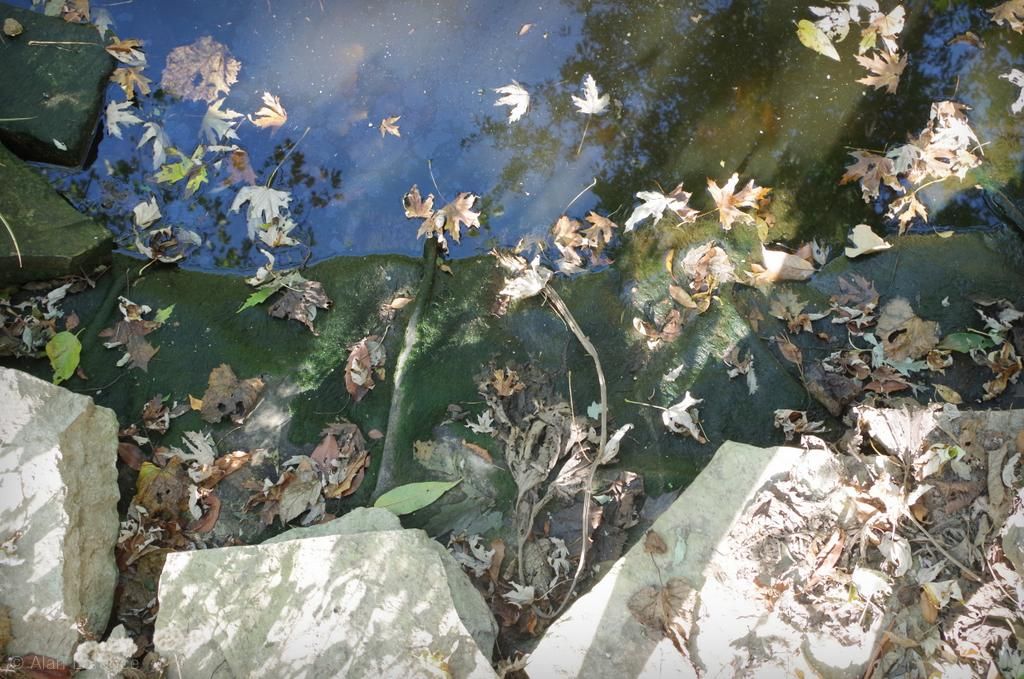

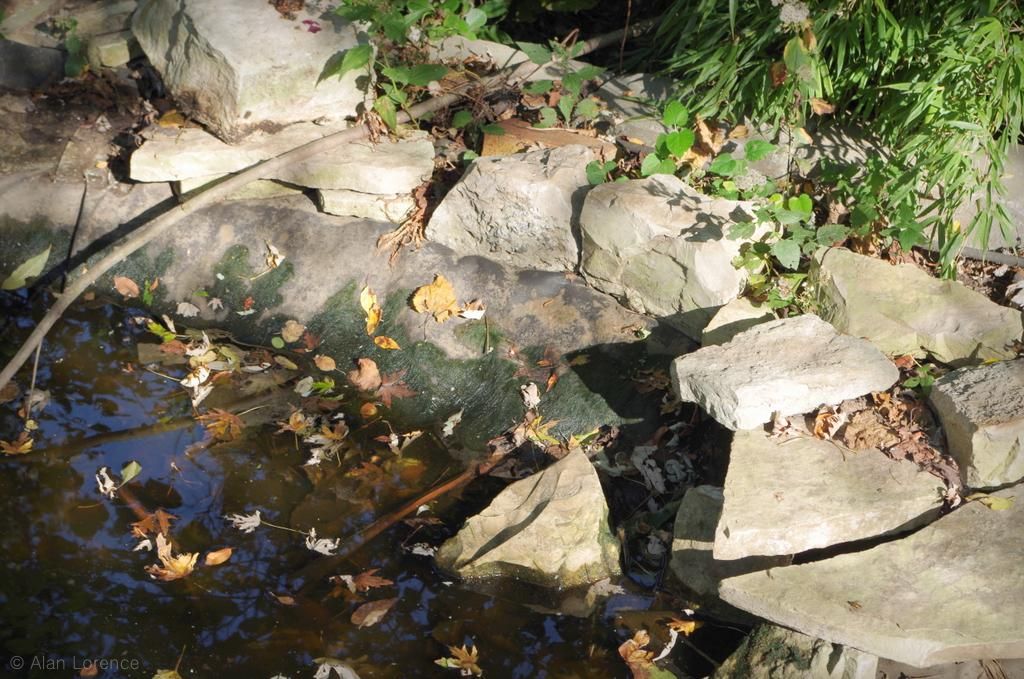

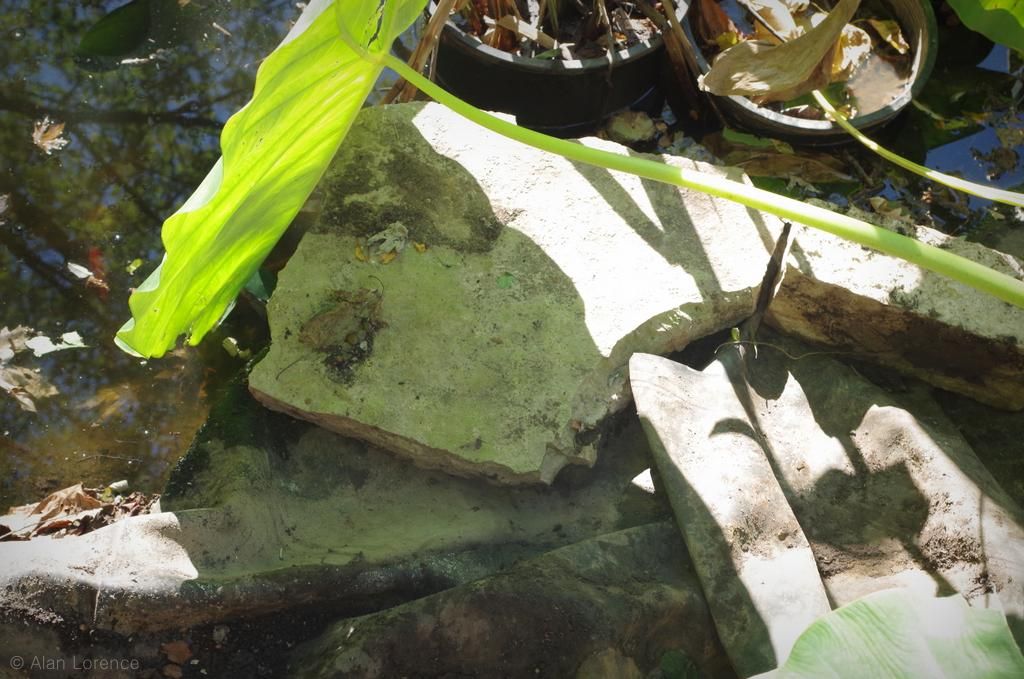
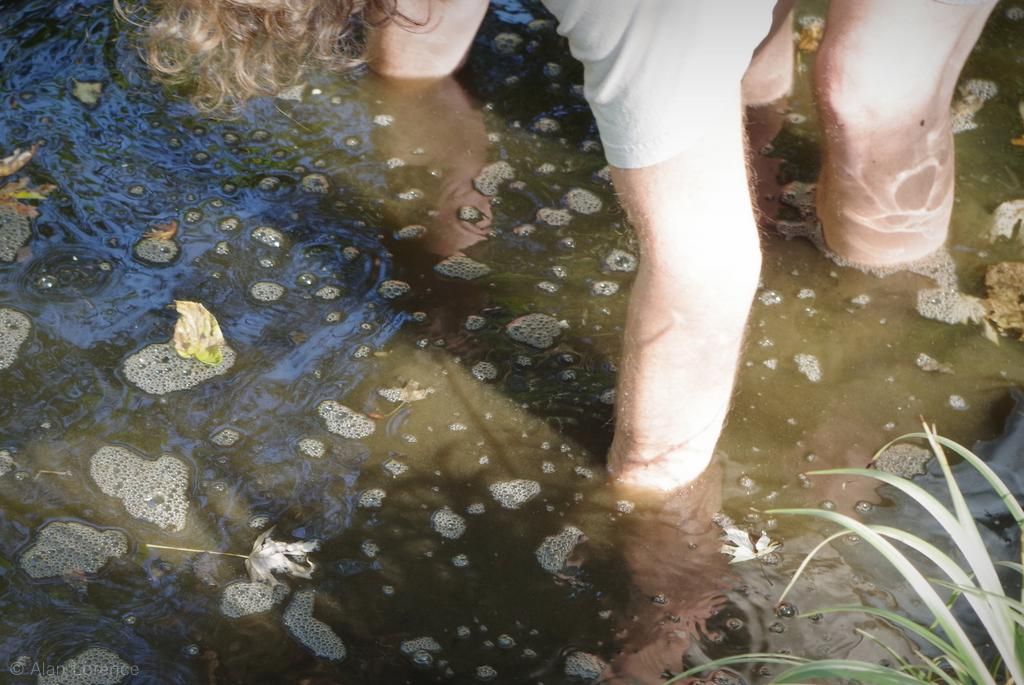
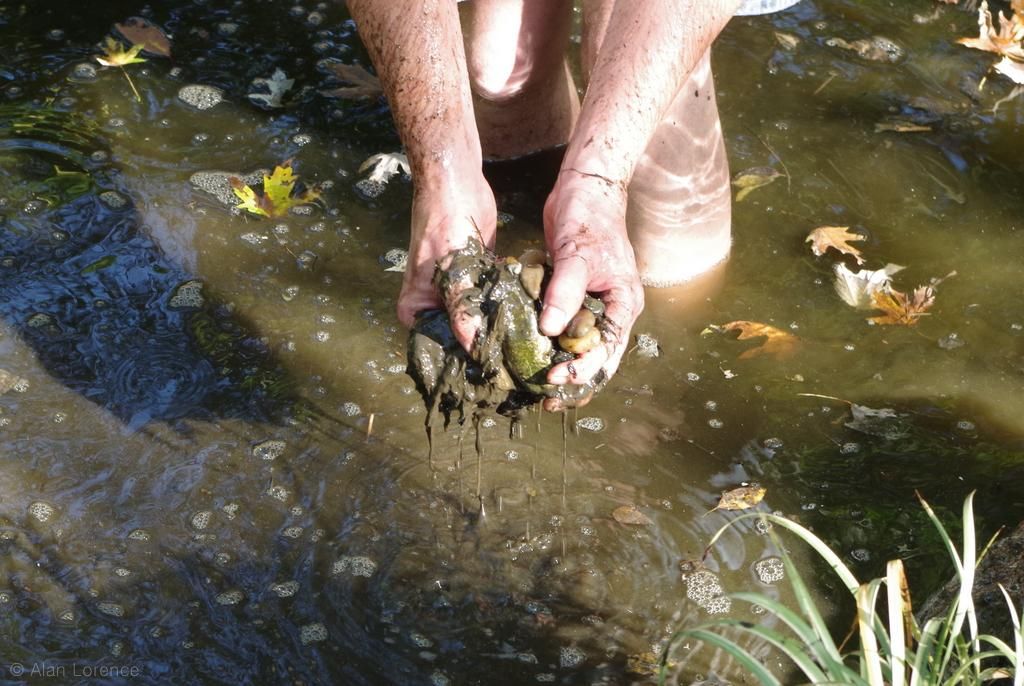
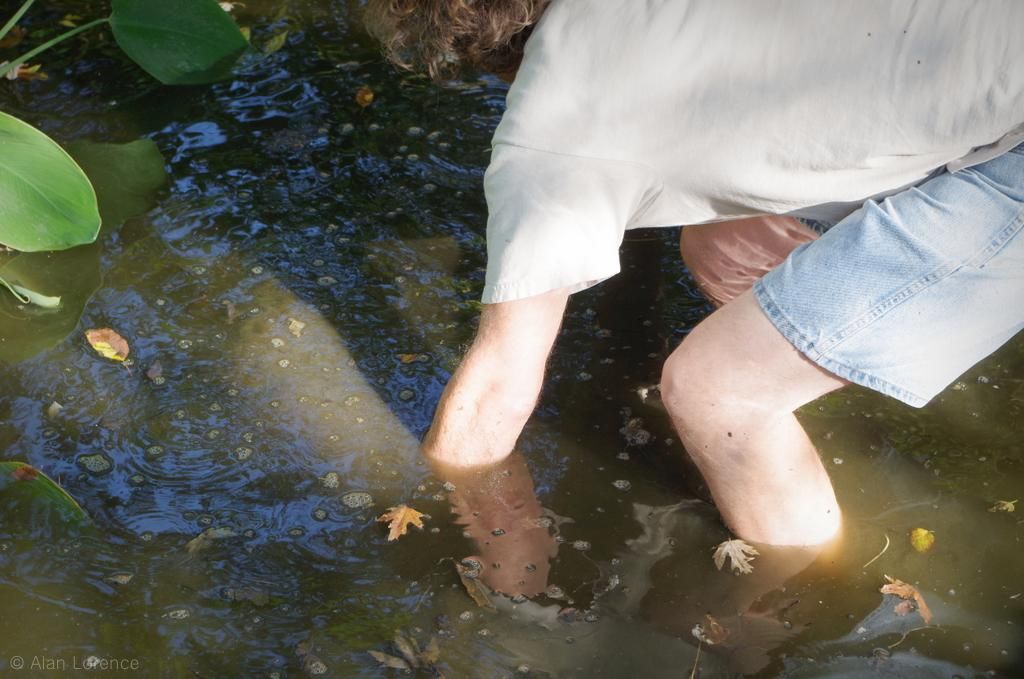
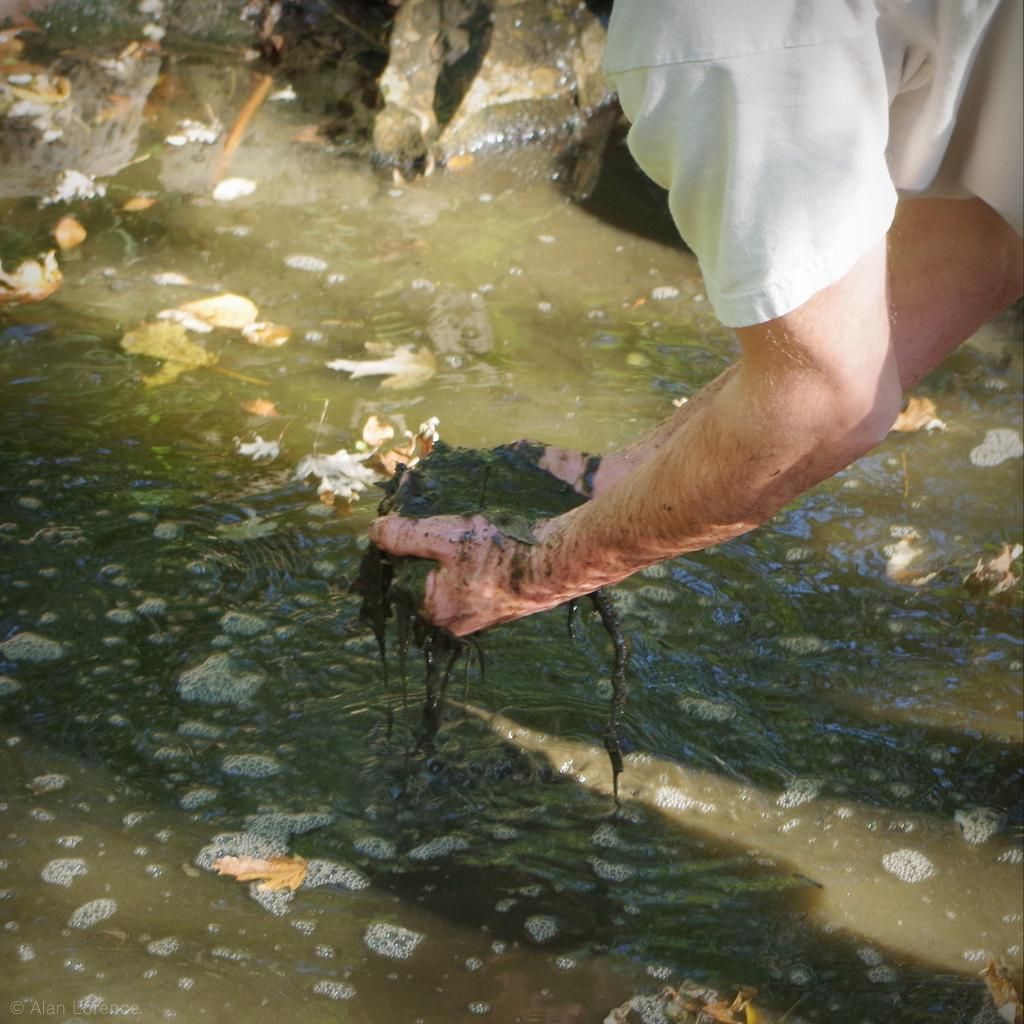
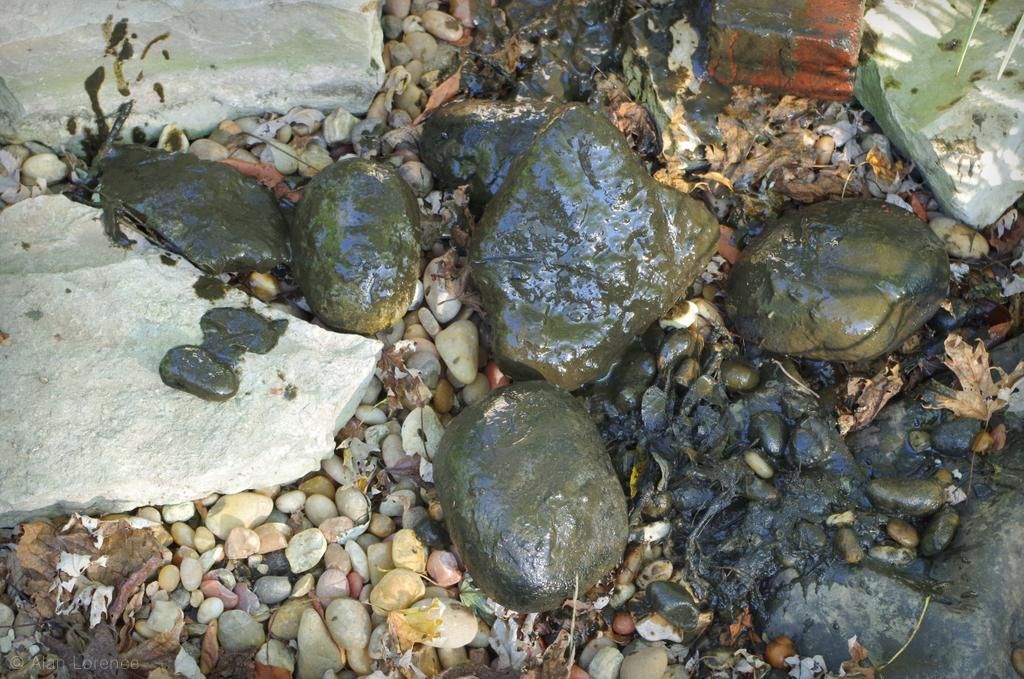

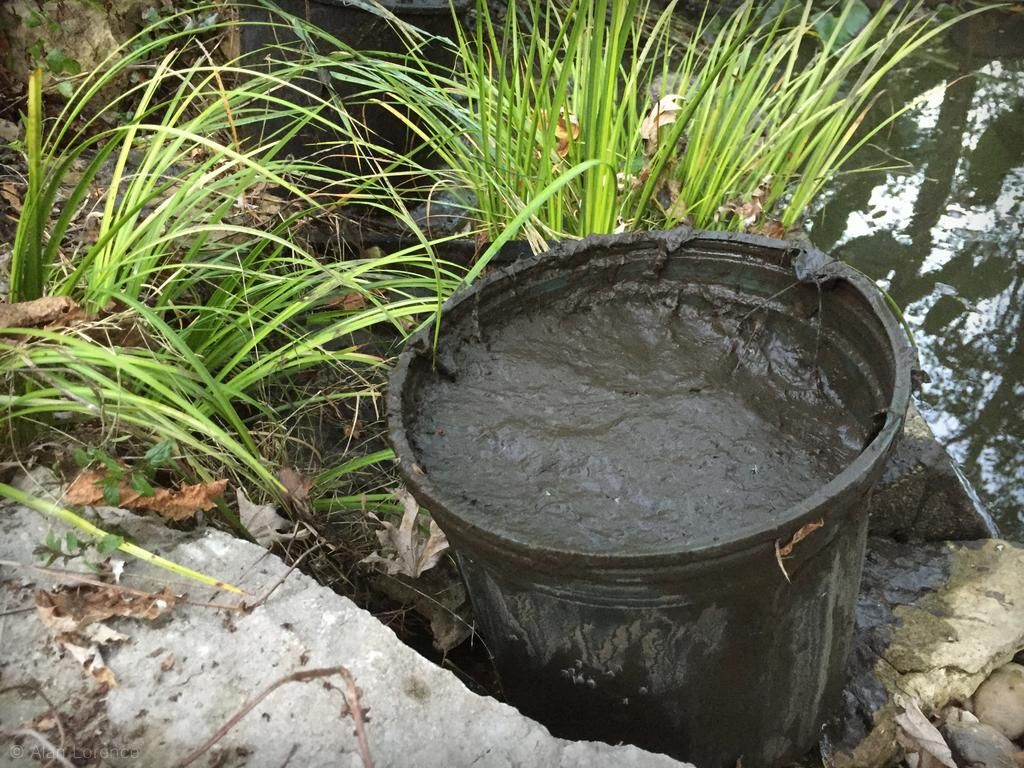
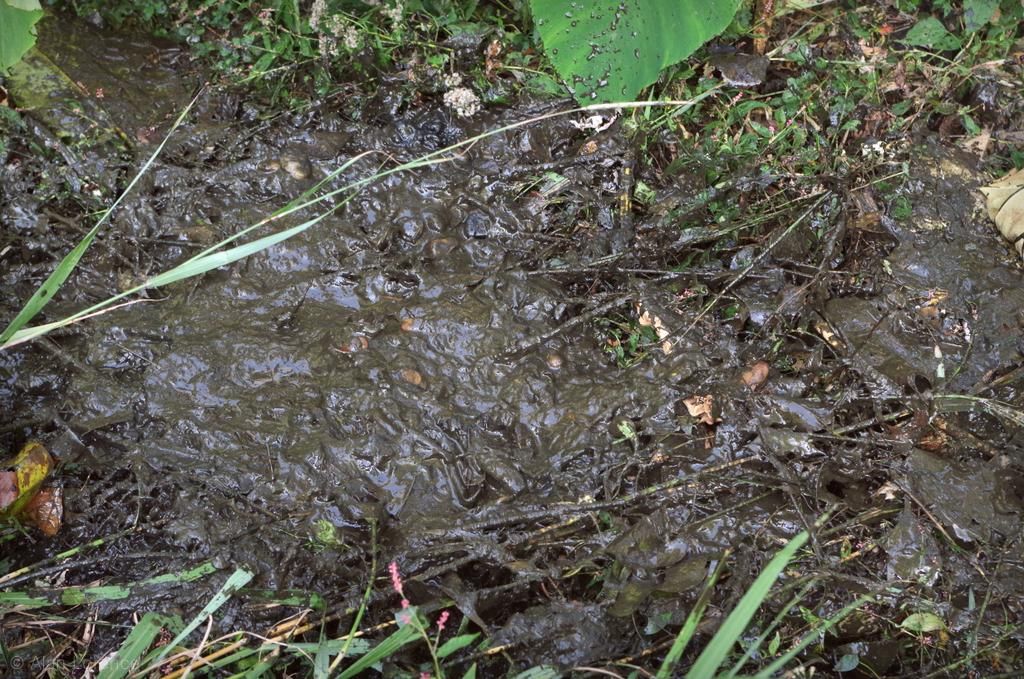
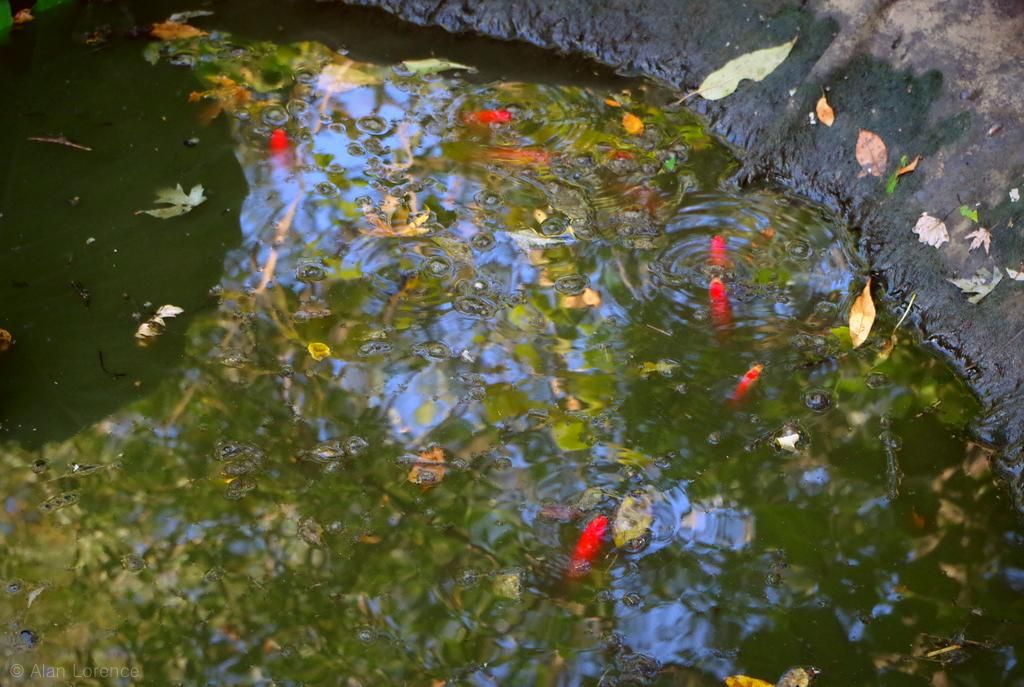

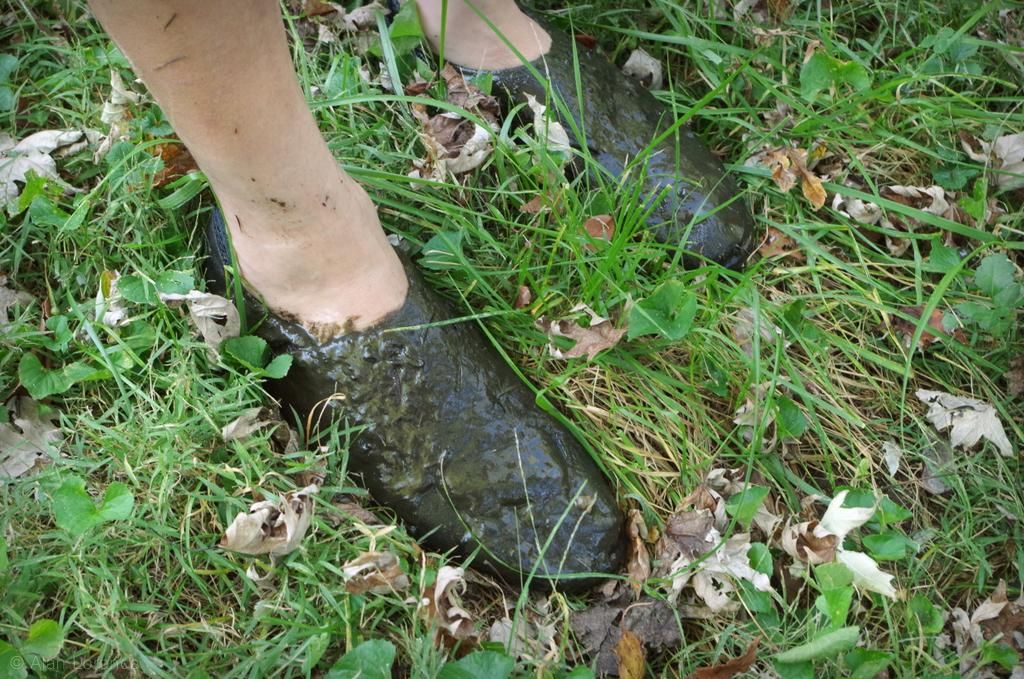
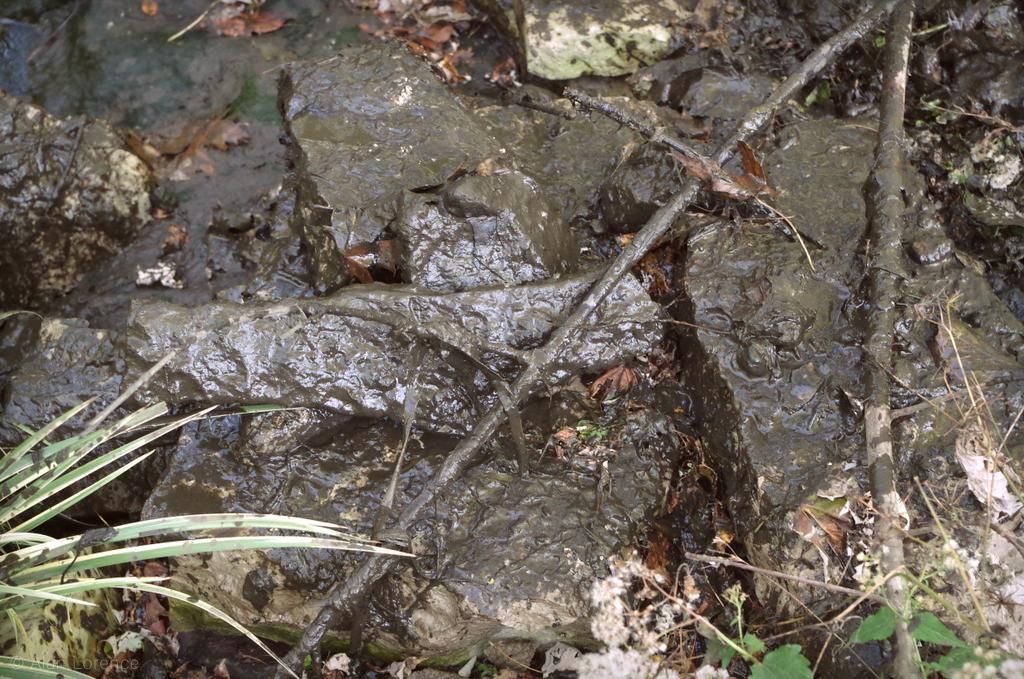
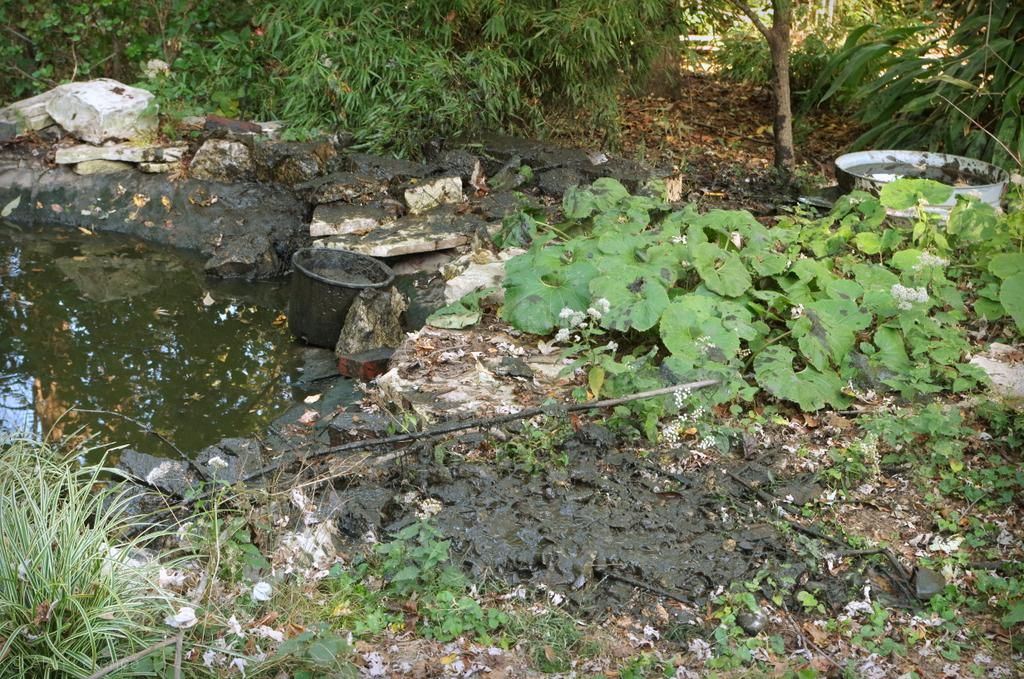
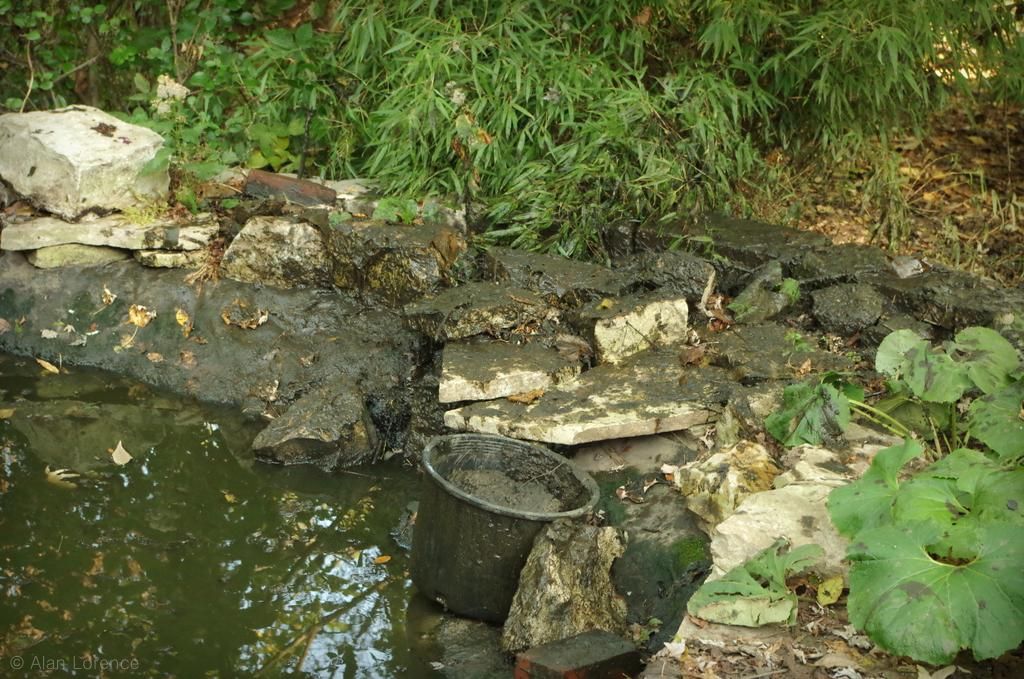

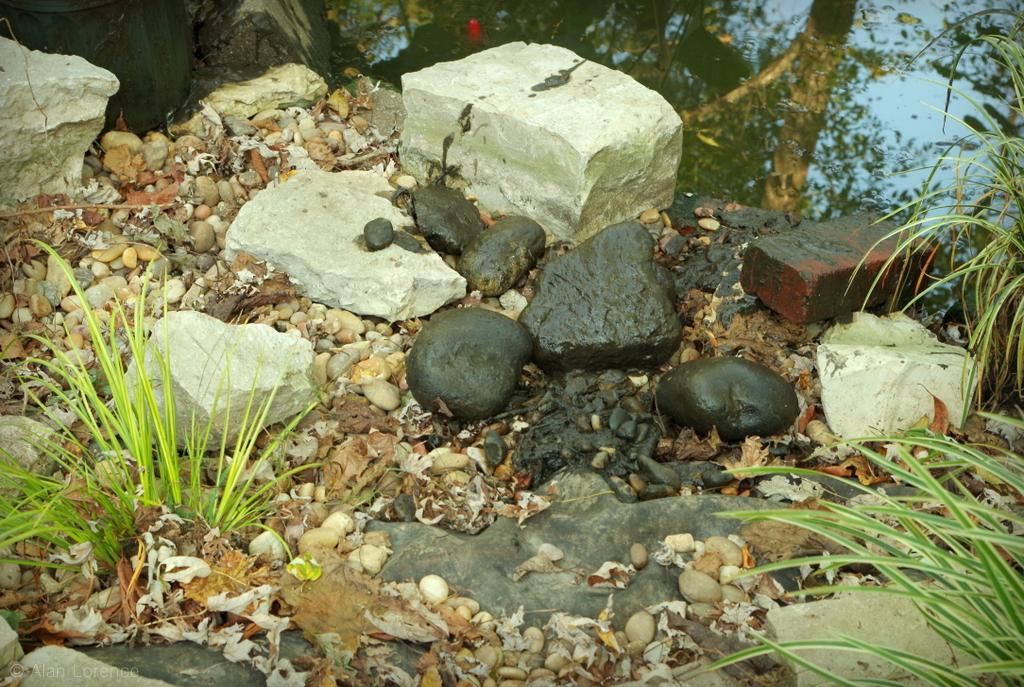
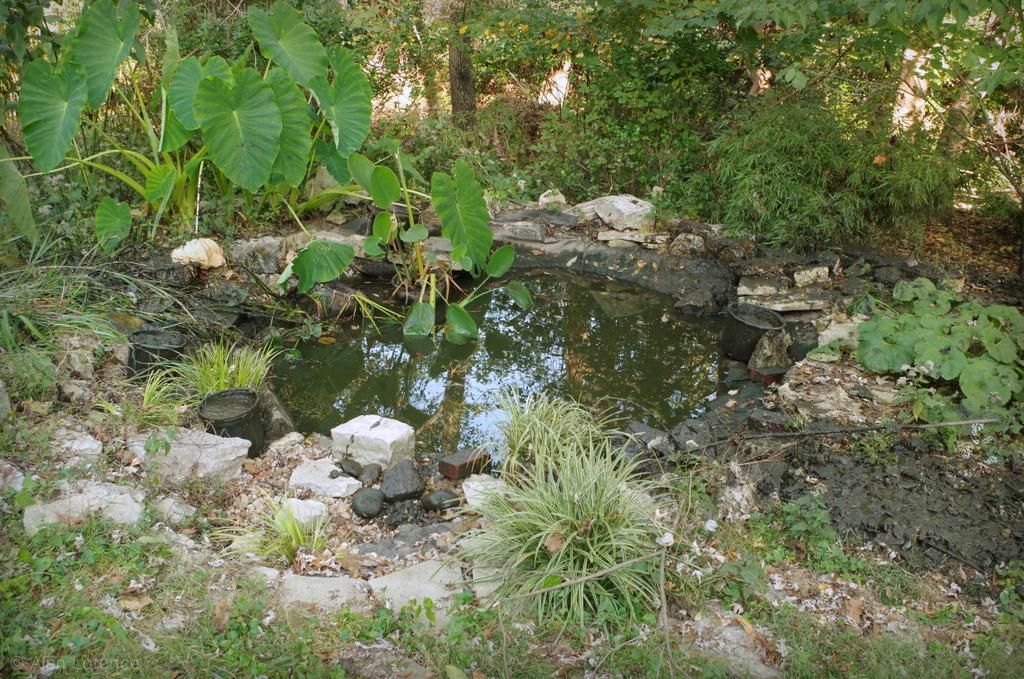
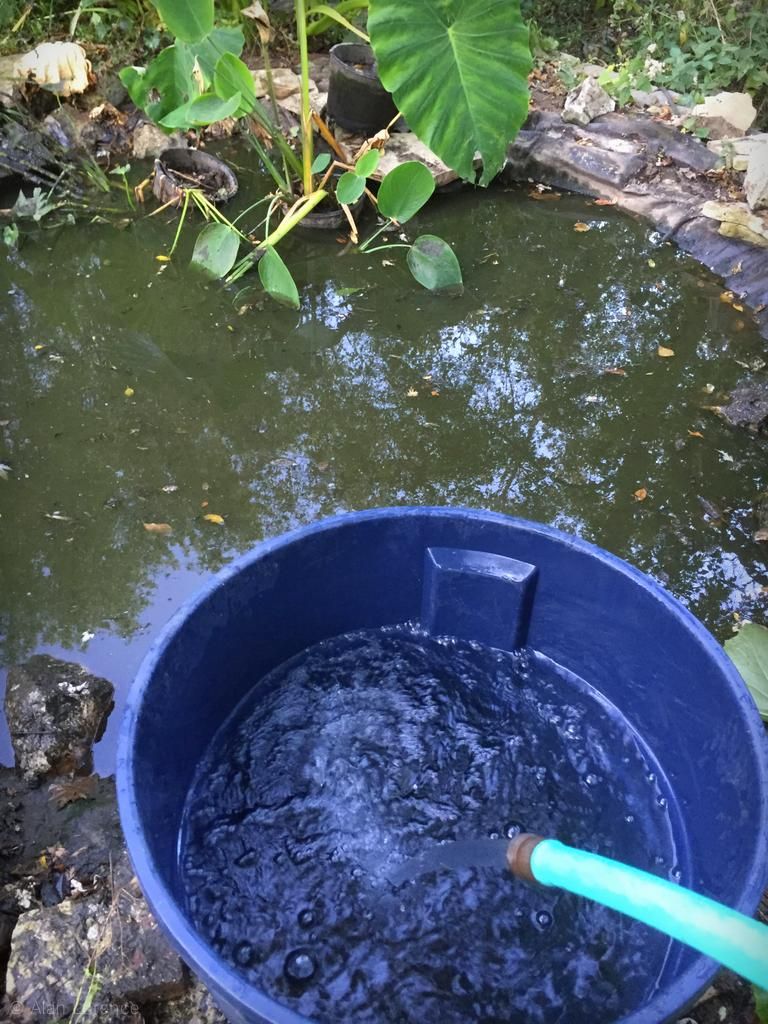
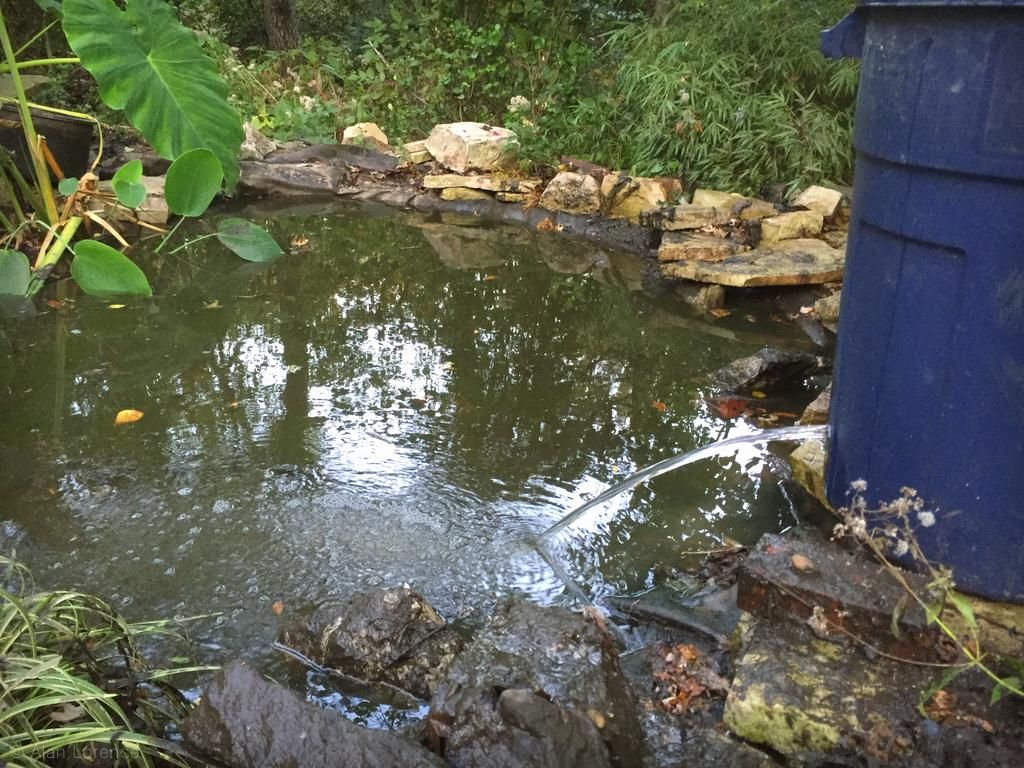
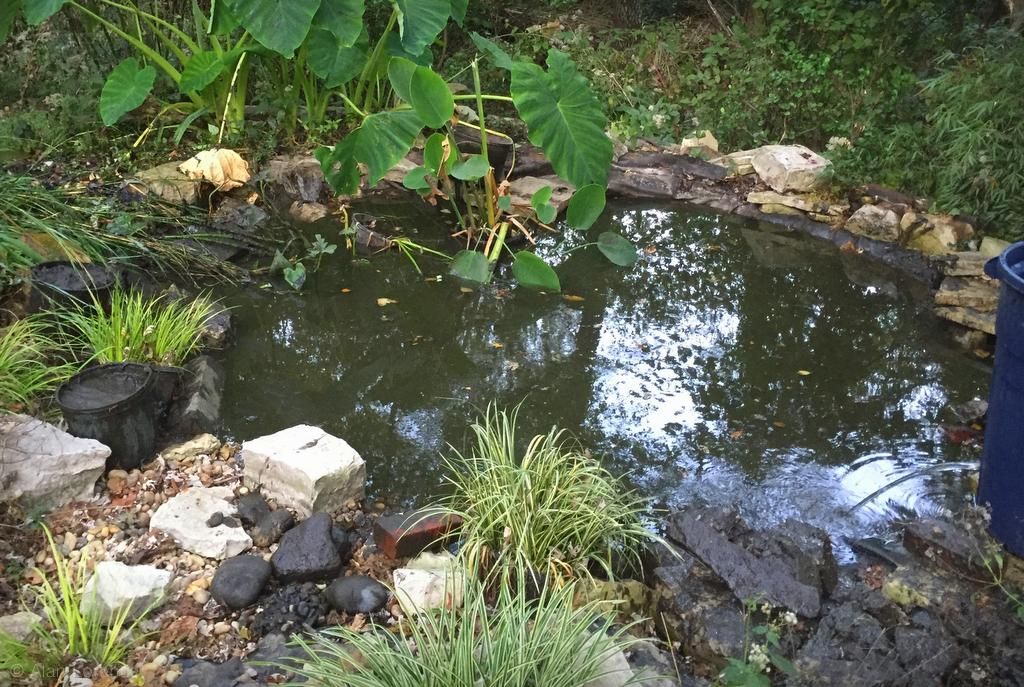
Wow, that is a lot of messy work to do! Great pictures of the reality of having a pond
ReplyDeleteWhat a yucky job but it will definitely be worth it once it's over. I use a wet/dry vaccum in the spring and fall to get all of the extra gunk out of the bottom of the pond and it works like a charm. Now that you've pulled out the biggest stuff that might be a solution that wouldn't require wading in the water.
ReplyDeleteGross, and I bet stinky? How will you deal with the muddy goo you tossed all around the pond?
ReplyDeleteLoree: I'll wash the gunk away. It will soon be covered by leaves anyway, and by next spring it will be fine.
ReplyDeletePeter: So you fill the wet vac cannister with muck? I think I'd have ten loads or more... I'd love to hear more details on this!
SOOOOO much fun. NOT! Can the muck be used as fertilizer?
ReplyDeleteThat muck would be great stuff in the garden I bet, but that would require moving it with purpose which I'm sure was low on the priority list! It seems you're done with the worst of it now though - I bet it looks great today!
ReplyDeleteYuck! That's a job I don't envy you. At least it was easy to find the tear. Hope the repair works. whenever I pull dead leaves and stuff out of the tank water garden I give it to the plants. It must be good for them.
ReplyDeleteYucky, mucky stinky...not to mention the hard labor. I knew there was a down side to keeping a pond. Love them in other's gardens :-)
ReplyDeleteHaving had to wade into my own pond to clear the bottom drain or put the drain cap back on--yeah, running for a hot shower right after exit is the first priority! Wet/dry vac or pond vacs can come in handy. Air pump for the fish in summer heat is handy also.
ReplyDeleteWe went for the raised pond concept so no soil washes in, and vertical sides discourage raccoons--they prefer a beach to walk in.
Approximately what is the diameter of your pond? It looks great and I enjoyed looking back at the historical threads of you building it.
ReplyDelete